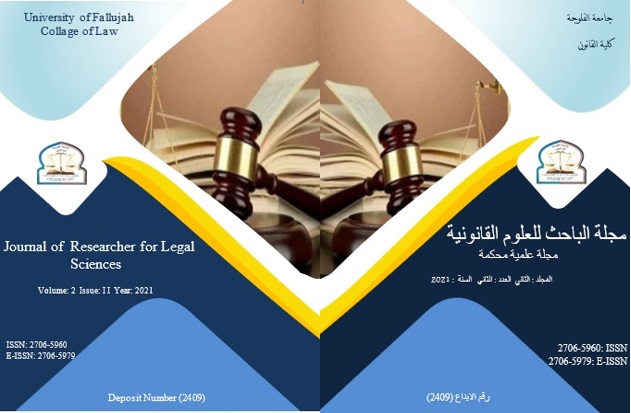Criminal protection for community security in Iraqi legislation
Doi:https://doi.org/10.37940/JRLS.2021.2.2.7
Abstract
Enacting legislation is necessary to confront a danger that threatens the security and safety of the society, whether the danger is directed against the persons themselves, financial rights, or anything else that is considered one of the essential components of the continuity of human life. Spreading peace and security and minimizing conflicts in the society is required for achieving development in human life from different aspects including; political, economic and cultural aspects. So that, criminal legislation criminalizes actions that affect negatively on the integrity of social security, through legal texts that punish actions and behaviors that threaten the security and stability of society. For example, The Iraqi Penal Code includes several crimes targeting and threatening peace and social security, as it stipulates the criminalization of everything that provokes a feeling of hatred and resentment among the various groups of the society, such as religiously, ethnically or sectarian differences, as well as it penalizes anyone who provokes civil war and sectarian fighting. As the crime is realized as soon as the perpetrator commits a criminal action that aims to provoke a feeling of hatred or civil war and fighting, even if the result is not achieved. Accordingly, the Iraqi Penal Code asserts providing the necessary protection for the society and regulating the relations between its members, sects, or its multiple components, especially since the Iraqi society is multi-sectarian. It stressed the punishment for every attack targeting any group or sect basing on religious, ethnic, or sectarian affiliation.






